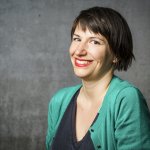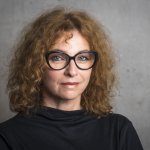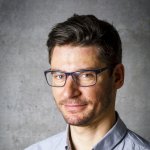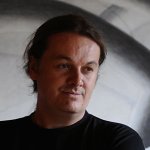You will learn to prepare practical projects in industrial design, designing the perfect dental chair, meeting both aesthetic and patient comfort requirements, as well as innovations in medicine and the ability to use the latest technology during treatment.
This is an opportunity to develop the fundamentals acquired during your Bachelor’s studies and to find your own thing and your personal path – including a potential study stay abroad. In the course of a two-year study programme, you will take on more challenging projects, including some in collaboration with Czech or foreign partner companies or inter-disciplinary projects with other faculties – for example, creating a top of the line prosthesis in collaboration with biomedical engineering, etc. This will allow you to already begin building your network of contacts for your future career while still in school.
WHAT WILL YOU LEARN?
SOMETHING EXTRA THAT may INFLUENCE YOUR DECISION
The opportunity of studying abroad is a bonus you shouldn’t let pass you by! Study stays for students of the Faculty of Architecture at the best European and even Non-European schools are made possible by mutually concluded agreements. In the Erasmus+ program, you can spend up to 12 months abroad – the prerequisite being, of course, sufficient mastery of the required language. Studying in English is not possible everywhere, which is why knowledge of another major world language, such as Spanish or French is a great advantage.
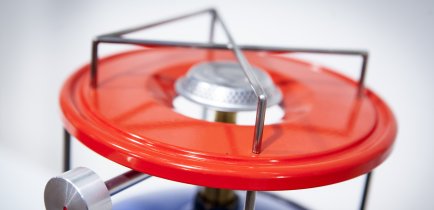
HARD CRAFT AND BEAUTIFUL ART
You've already mastered working with different materials and have technologies under your thumb, but count on the fact that a lot of things will not work out the first time around. But if you don't give up, prototypes of objects, machines and tools that are not only beautiful to look at, but also perfectly functional will flow from your hands. What’s more, you can also take an elective course in automotive body and frame design and become a respected designer at one of the world's most recognized automakers in a few years!
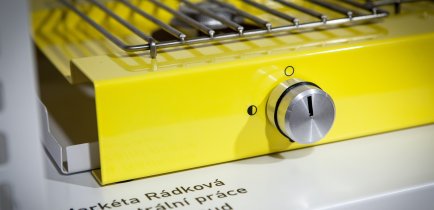
THINK LIKE A DESIGNER
An industrial designer must be able to look at everything around them through the eyes of a person who is familiar with ergonomics, the fundamentals of anatomy and other disciplines. If he or she comes over for a visit, the contours of the offered chair will first be felt, and only then will the designer sit on it. He or she may then mention in passing that your chair seems to have been designed by a sadist, and will then recommend that the seat cushion and the backrest angle be adjusted so as not land a person in a medical office with back pain ...
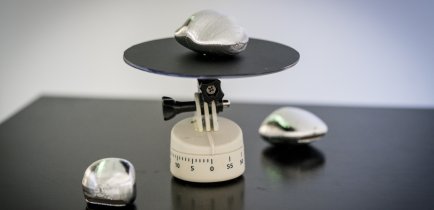
MAKing SOMETHING
Your ideas will certainly not remain only in your head or on paper: In the workshops or production facilities you will actually try to produce what you design. The projects you will work on may be introduced into the real world – whether you design a mobile hospital bed for newborns, train seats or city lighting for Prague…
WHY STUDY WITH US?
-
Vertical Studios
The studio is a subject in which you apply your arsenal of theoretical knowledge. There are 5 industrial design studios at the faculty and are all headed by the recognized best professionals in the field. The studios specialize in various branches of design, and it will be entirely up to you to decide whether you prefer working with glass, porcelain or lighting design. The attribute “vertical” means that in the context of the studio, students can collaborate on a single project regardless of whether they are in their second, third, fourth or final year.
-
Individual Approach
Emphasis on studio teaching allows a very close collaboration between the students and teachers. They meet twice a week in the chosen studio and the adept can spend a good amount of time on each assignment with his or her “guru”, discussing the elected approach and the most appropriate solution.
-
Learning by Doing
Students of the Faculty of Architecture do not spend hours upon hours in lecture halls. To get a good feel for reality, in line with the “learning by doing” concept, we use workshops, excursions and various forms of DIY and creating. That is, we do things that cannot be learned by rote.
TEACHERS
The teachers at the Faculty of Architecture are not solely academics, but, above all, they are also engaged in professional practice – recognized experts in their respective fields. And they are wonderfully distinctive personalities, so don’t expect any boring old stuffed shirts. Instead, you can look forward to them taking you on an excursion to an environment not many ever get to see, or maybe even out to a pub.
GRADUATES
After completing all the requisites, i.e. passing the state exams and defending the master's thesis, it is of course possible to begin practice – whether as a freelance designer, or at some design company or production facility. Another option, however, is to continue your education by entering the doctoral studies programme, which, among other things, is a prerequisite for a future academic career. You will surely find employment: A first-rate design, or the product’s “coat”, helps to sell the product.
ENTRANCE EXAMS
Candidates with completed Bachelor’s studies can apply to study for a Master’s degree in the same or a related field. In contrast to the entrance exams for the Bachelor’s programme, however, there are no talent tests, but rather the student’s portfolio of school work or other projects the candidate has worked on are evaluated. Graduates in Bachelor’s studies in a related programme at the FA at CTU with excellent results are accepted to the Master’s programme without entrance exams.
STATE FINAL EXAMS
The condition for the state examination, which precedes the defence of the master’s thesis and consists of two subject blocks – design a design practice and management – is the successful completion of compulsory subjects within these blocks. After defending your thesis, you will receive the title of MA.
diploma project
This takes the form of designing industrial products, exhibitions, sets, lighting and so on, but can also take the form of a theoretical work. Some students take their proposed design all the way to the point of producing a functional prototype. The diploma projects are submitted within a fixed deadline, set for each academic year.






